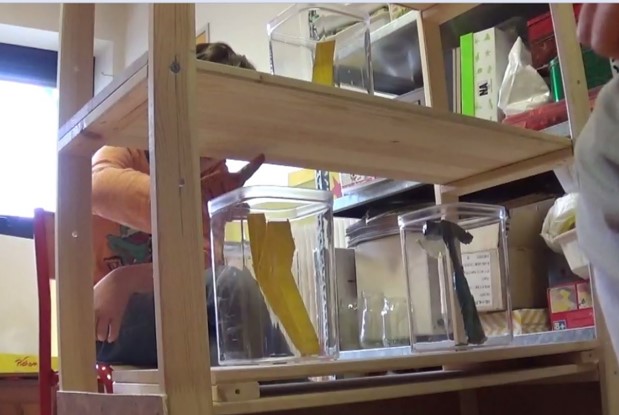
Comparative social learning
We study experimentally and cross-culturally phenomena such as conformity and overimitation in children aged three to twelve years old (Gruber et al. 2019; Frick et al. 2017). While there is no denial that humans are the most social species in their learning of tools, the idea here is to put human learning in context and give a fair comparison to other species.
Main papers of interest
Frick, A., Schleihauf, H., Satchell, L.P. & Gruber, T. (2021) Carry-over effects of of tool functionality and previous unsuccessfulness increase overimitation in children. Royal Society Open Science, 4, 170367. doi: 10.1098/rsos.201373
Gruber, T., Deschenaux, A., Frick, A., & Clément, F. (2019) Group membership influences more social identification than social learning or overimitation in children. Child Development, 90(3), 728-745. doi: 10.1111/cdev.12931
Frick, A., Clément, F. & Gruber, T. (2017) Evidence for a sex effect during overimitation: Boys copy irrelevant modelled actions more than girls across cultures. Royal Society Open Science, 4, 170367. doi: 10.1098/rsos.170367
Gruber, T., Frick, A., Hirata, S., Ikuma, A. & Biro, D. (2019) Spontaneous categorization of tools based on observation in chimpanzees and children. Scientific Reports, 9, 18256, doi:10.1038/s41598-019-54345-1
Social learning of novel behavior in wild chimpanzees
It is increasingly rare to directly observes case of social transmission of a novel behavior in wild chimpanzees but we were able to tract the appearance and subsequent spread of a novel behavior, moss-sponging, in a wild community of chimpanzees. The original study (Hobaiter et al. 2014) has become a key paper in the debate on the social transmission of tool use in chimpanzees. Subsequent work has showed experimentally that moss-sponging continued to spread beyond its initial innovation within family lines, and most likely because it was more efficient than the ancestral behavior, leaf-sponging.
Main papers of interest
Hobaiter, C., Poisot, T., Zuberbühler, K., Hoppitt, W. & Gruber, T. (2014) Social network analysis shows direct evidence for social transmission of tool use in wild chimpanzees. PLOS Biology, 12(9): e1001960. doi:10.1371/journal.pbio.1001960
Lamon, N., Neumann, C., Gruber, T. & Zuberbühler, K. (2017) Kin-based cultural transmission of tool use in wild chimpanzees. Science Advances, 3, e1602750. doi: 10.1126/sciadv.1602750
Lamon, N., Neumann, C., Zuberbühler, K. & Gruber, T. (2018) Wild chimpanzees select tool material based on efficiency and knowledge. Proceedings of the Royal Society B, doi: 10.1098/rspb.2018.1715





